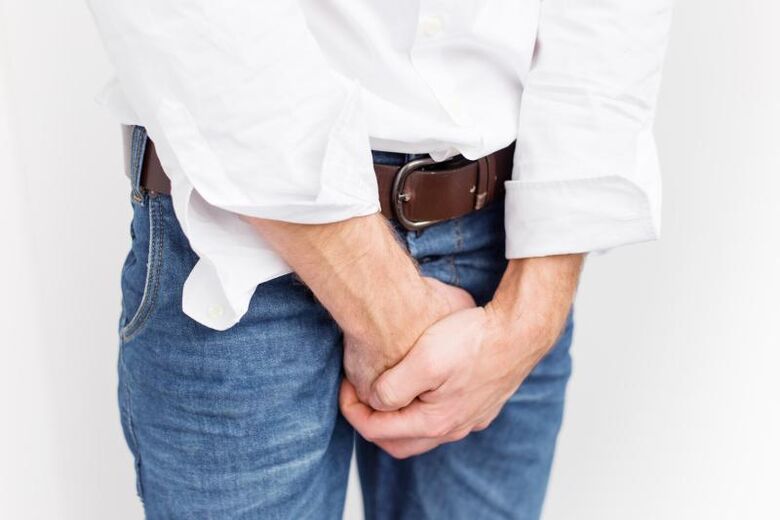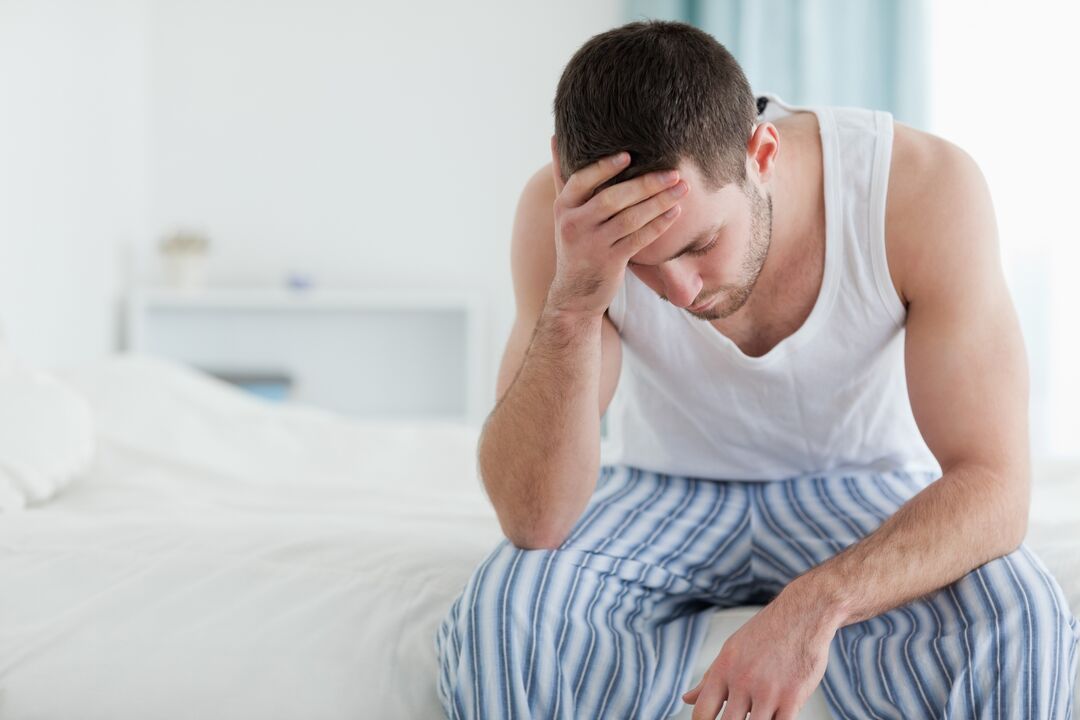
Prostatitis is a disease that can only occur in the male genitourinary system. Representatives of the strong seldom rush to see a doctor, and often skip the favorable treatment phase and leave the solution to the health problem at a convenient time, which is usually too late. It is very important to listen to the voice of your body, and to detect problems that may be imprisoned in a hospital bed for a long time.
Taking care of the health of the prostate becomes particularly important in adulthood. But this disease is actively rejuvenating. If the early diagnosis is mainly in men over 40 years old, the symptoms of prostatitis now begin to be found at the age of 20-25. Almost everyone is suffering.
The role of the prostate in men
Since the glands perform many important functions, this organ is often referred to as the "second heart". A secret is formed in it, which dilutes the components of sperm. The gland is a part of the sphincter that regulates the urination process. It produces and transforms male hormones and also contributes to the feeling of orgasm.
Signs and symptoms of male prostatitis
Prostatitis is inflammation accompanied by swelling of the prostate (prostate) tissue. It will inevitably manifest itself, even if the pathology itself is in the organs near it, the vas deferens, urethra, and bladder. The main highways of the circulatory and lymphatic systems pass through the groin area, which exacerbates congestion. Many nerve fibers running in this area of the body can cause painful seizures.
The symptoms of prostatitis are caused by the type of disease, which is characterized by its cause. The following types have been identified:
- germ;
- Sterile, or non-infectious;
- Spicy;
- Chronic.
Although for each item you can distinguish its own signs of prostatitis, the symptoms have similar manifestations:
- Discomfort and soreness in the suprapubic area, groin area, and scrotum.
- Often go to the toilet with the urge to cut and pain, and the feeling of incomplete emptying.
- Decreased libido.
- The body temperature rises and the chill hits.
- A state of depression, indifference, and depression.
At least two of the symptoms listed are already important reasons to see a specialist urologist or andrologist. A latent disease may not show up for a long time, and the first signs of male prostatitis will be discovered many years after the onset of the predisposing factors.
It is worth watching for pain in the small pelvis, sacrum, and lower back. Pain syndrome is exacerbated by abstinence or, conversely, too frequent sexual contact. The secretions of the glands have a natural bactericidal barrier, therefore, only fluid stagnation can cause the inflammatory process to occur, when the bactericidal effect disappears.
Signs of prostatitis in different types of diseases
According to the clinical manifestations of the disease, many forms and types of prostatitis can be identified. Each of them is different in the signs and nature of its course. The performance of prostatitis is determined by the cause of its appearance.
Urologists have identified two main causes of prostatitis:
- Infections that can enter the pelvic organs in various ways;
- Fluid in the glands.
What are the factors that form these phenomena:
- Various microorganisms and fungi infect the genitourinary system;
- Reduce immunity and hinder protection against infection;
- Hypothermia, such as sitting on a cold surface for a long time;
- A sedentary lifestyle can cause the body to stagnate;
- Dependence on tobacco and alcohol affects blood circulation and narrows the blood vessels in the small pelvis;
- The normal production of hormones is disturbed, which can cause problems or impotence in the genital area;
Let's analyze the individual forms and signs of prostatitis:
- Acute prostatitis-Inflammation of the prostate tissue. It is accompanied by edema and destruction of natural processes. The swollen glands expand and compress the canals of the excretory system. There are problems with the management of natural needs, such as cramps, burning and pain when urinating, and feeling bubbles of incomplete urination. Very severe cases can be accompanied by swelling of the scrotum, which can cause pain and discomfort during palpation. The production of secretions that form sperm components is impaired, which affects its quality maturity. Intimate areas of life are also affected. Physical inconvenience can have a negative impact on psychological comfort. The lesions of male purulent prostatitis, the symptoms are: yellow viscous discharge from the penis, high fever, and acute urinary retention. In most cases, the cause of the disease that develops in this severe form is that the infection enters the body. Pathogenic microorganisms: viruses (papilloma, influenza), bacteria (chlamydia, trichomoniasis) and fungi, such as the Candida family. The first signs of acute prostatitis in men are similar to the first signs of any infectious disease: chills, weakness, muscle aches, fever up to 39°C. When a cut pain occurs in the pelvic area, the man concludes that it is not just a cold and it is impossible to "lie down". Then the problem of going to the toilet was added. Treatment of acute forms of infection can only be performed correctly by appropriately qualified doctors. We need to make a clear diagnosis of the disease and quickly relieve the symptoms of prostatitis. In most cases, antibiotics are prescribed, the duration of which depends on the effectiveness of their action. Medical treatment will be accompanied by physical therapy procedures and prostate massage to promote tissue recovery.
- Chronic prostatitis-The most common pathology of the male genitourinary system. According to medical statistics, approximately 80% of prostatitis detected cases are the chronic form of this disease. The most common developmental factor is the influence of pathogenic microorganisms on the body, such as Trichomonas. Lack of regular physical exercise, bad habits, and trauma often lead to the chronic course of prostatitis. Acute prostatitis, which is often incompletely cured, becomes chronic.
The most common symptoms of chronic prostatitis are:
- Discomfort and pain in the suprapubic area, pain in the groin area;
- Often wake up every night to go to the toilet;
- Difficulty urinating
- Pain during ejaculation;
The chronic symptoms of male prostatitis and its symptoms make many men feel uncomfortable, but most people endure it, do not go to a specialist, and recklessly believe that the disease may go away on its own. You can wait for the opposite effect. In the case of this insidious disease, a person may develop in the form of a more dangerous disease, or chronic prostatitis may become its acute form.
The saddest result of pampering will be infertility or impotence. The treatment of chronic prostatitis is carried out with the direct participation of doctors. He prescribes antibiotics and anti-inflammatory drugs. Medications are used to relax the muscles of the urethra, making it easier for the patient to go to the toilet.

Bacterial/non-infectious prostatitis-factors such as:
- Injuried;
- A sedentary lifestyle;
- Constant pressure
- Immunocompromised;
- Internal infection of the intestines or small pelvis.
The symptoms of prostatitis are pelvic discomfort or pain, difficulty in going to the toilet, and disorder in private space. The patient is often tired, weak, and mentally depressed. Self-medication is unacceptable because it requires a comprehensive approach by careful experts. It is easy to harm your body by prescribing your own medicine.
The wrong choice of antibiotics can adversely affect the intestinal flora. Immunity will decrease, which will worsen the processes that take place in the prostate.
Some medicines can only relieve symptoms. If the drugs do not help for objective reasons, the specialist must replace them and introduce hormonal drugs into the treatment.
Precaution
The preventive measures to prevent prostatitis are:
- Personal hygiene;
- An orderly rhythm of sexual activity;
- Sports;
- Warm up regularly in the workplace of the office;
- Complete diet
- Reject bad habits;
- Treat any urogenital infections promptly;
- Immunity continues to improve.
The signs and symptoms of male prostatitis are very similar to many other dangerous diseases such as cancer, abscesses, and cystitis. Negative consequences may make a person infertile. Timely referral to an experienced specialist will help avoid health problems. Regular physical examination is very important: once a year is enough, especially after forty years.















